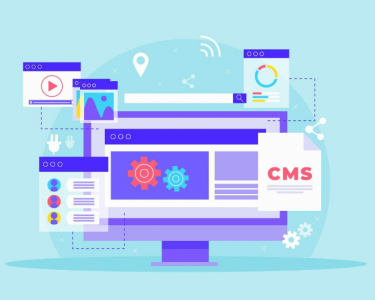In the fast-paced world of business, efficient financial management is paramount. Accounting software has become an indispensable tool for streamlining processes. It helps businesses save time, reduce errors, and make informed decisions. As we approach 2024, the accounting software landscape continues to evolve. New features and innovations are emerging to meet the ever-changing needs of organizations. This comprehensive guide explores the top 8 accounting software in 2024 poised to revolutionize financial management.
1. QuickBooks Enterprise
Widely recognized as a leading accounting solution, QuickBooks Enterprise remains a top contender in 2024. This powerful software caters to the needs of mid-sized and large businesses. It offers robust features for managing finances, inventory, and payroll. Additionally, QuickBooks Enterprise provides advanced reporting capabilities and seamless integration with third-party applications.
Key Features:
- Comprehensive financial management tools
- Inventory tracking and job costing
- Customizable reporting and dashboards
- Multi-currency and multi-location support
- Robust security and role-based access controls
2. Xero
Xero has solidified its position as a cloud-based accounting software powerhouse. Its user-friendly interface and accessibility make it a popular choice. In 2024, Xero continues to enhance its offerings with improved automation capabilities. This includes features like bank feed rules and batch invoicing. Furthermore, Xero’s open API allows for seamless integration with a wide range of third-party apps.
Key Features:
- Cloud-based platform for anytime, anywhere access
- Automated bank feed and reconciliation
- Comprehensive reporting and analytics
- Mobile app for on-the-go access
- Robust ecosystem of integrated apps and add-ons
3. FreshBooks
Designed specifically for small businesses and freelancers, FreshBooks is a cloud-based accounting solution. It excels in simplifying invoicing, time tracking, and expense management. In 2024, FreshBooks continues to enhance its user experience. It offers features like customizable invoice templates and automated late payment reminders. Furthermore, its project management capabilities make it a versatile choice for service-based businesses.
Key Features:
- Intuitive invoicing and time tracking
- Automated expense tracking and reporting
- Client portal for seamless collaboration
- Customizable templates and branding
- Integration with popular payment gateways
4. Sage Intacct
As a cloud-based accounting software, Sage Intacct caters to the needs of mid-sized and large organizations. In 2024, it continues to offer robust financial management capabilities. This includes features like multi-entity consolidation, project accounting, and advanced reporting. Additionally, Sage Intacct’s open architecture allows for seamless integration with other business applications.
Key Features:
- Multi-entity and multi-currency support
- Comprehensive project accounting and billing
- Customizable dashboards and real-time reporting
- Robust approval workflows and audit trails
- Integration with CRM, HR, and other business systems
5. Zoho Books
Zoho Books is a comprehensive cloud-based accounting solution suitable for businesses of all sizes. In 2024, it continues to impress with its user-friendly interface and automation features. These include bank feed integrations, recurring invoices, and automatic payment reminders. Additionally, Zoho Books seamlessly integrates with other Zoho applications, providing a unified business management platform.
Key Features:
- Automated bank feeds and reconciliation
- Customizable invoicing and recurring billing
- Project and time tracking capabilities
- Multi-currency and multi-language support
- Integration with Zoho CRM, Zoho Inventory, and other Zoho apps
6. NetSuite ERP
Designed for mid-sized and large enterprises, NetSuite ERP is a comprehensive cloud-based solution. In 2024, it continues to offer robust financial management capabilities. These include features like real-time visibility, revenue recognition, and advanced analytics. Additionally, NetSuite ERP seamlessly integrates with other business processes like CRM, e-commerce, and supply chain management.
Key Features:
- Real-time financial visibility and reporting
- Advanced revenue recognition and accounting
- Multi-subsidiary and multi-currency support
- Robust compliance and audit trail capabilities
- Seamless integration with CRM, e-commerce, and supply chain management
7. Wave Accounting
Wave Accounting is a free, cloud-based accounting solution designed for small businesses and entrepreneurs. In 2024, it continues to offer essential accounting features without any monthly fees. This includes invoicing, expense tracking, and bank reconciliation. Additionally, Wave Accounting provides affordable payroll and payment processing services.
Key Features:
- Free accounting software for small businesses
- Invoicing, expense tracking, and bank reconciliation
- Affordable payroll and payment processing services
- Mobile app for on-the-go access
- Integration with third-party apps and services
8. GoDaddy Online Bookkeeping
GoDaddy Online Bookkeeping is a user-friendly, cloud-based accounting solution. In 2024, it remains a popular choice for small businesses and freelancers. This software offers essential features like invoicing, expense tracking, and tax management. Additionally, GoDaddy Online Bookkeeping provides seamless integration with other GoDaddy products, such as website builders and email marketing tools.
Key Features:
- Simple and intuitive invoicing and expense tracking
- Automated bank feed integration and reconciliation
- Tax management and reporting capabilities
- Integration with GoDaddy website builders and email marketing tools
- Mobile app for on-the-go access
Choosing the Right Accounting Software
Selecting the right accounting software is crucial for the efficient management of your business finances. When evaluating accounting software solutions in 2024, consider the following factors:
1. Business Size and Complexity: Assess your business’s size, industry, and financial management needs. Some software solutions are better suited for small businesses, while others cater to mid-sized or large enterprises.
2. Features and Functionality: Identify the essential features you require, such as invoicing, expense tracking, payroll management, inventory management, and reporting capabilities.
3. Scalability: As your business grows, your accounting software should be able to scale and adapt to your changing needs.
4. Integration Capabilities: Evaluate the software’s ability to integrate with other business applications you currently use or may need in the future.
5. Accessibility and Mobility: Cloud-based solutions offer anytime, anywhere access, while mobile apps provide on-the-go functionality.
6. User Experience: Consider the software’s user interface and ease of use, as this can impact productivity and adoption within your organization.
7. Security and Compliance: Ensure the software adheres to industry standards for data security, privacy, and compliance regulations relevant to your business.
8. Support and Training: Assess the availability of customer support, documentation, and training resources to ensure a smooth implementation and ongoing assistance.
By carefully evaluating these factors and your specific business requirements, you can select the accounting software solution that best meets your needs in 2024 and beyond.
Conclusion
In the ever-evolving business landscape, efficient financial management is paramount to success. The top 8 accounting software solutions explored in this guide offer a diverse range of features and capabilities. From robust enterprise solutions to user-friendly options for small businesses, these software solutions are revolutionizing financial management in 2024. By embracing the right accounting software, businesses can streamline processes, gain valuable insights, and make informed decisions to drive growth and profitability. As technology continues to advance, the accounting software landscape will undoubtedly continue to evolve, offering even more innovative solutions to meet the changing needs of businesses worldwide.







